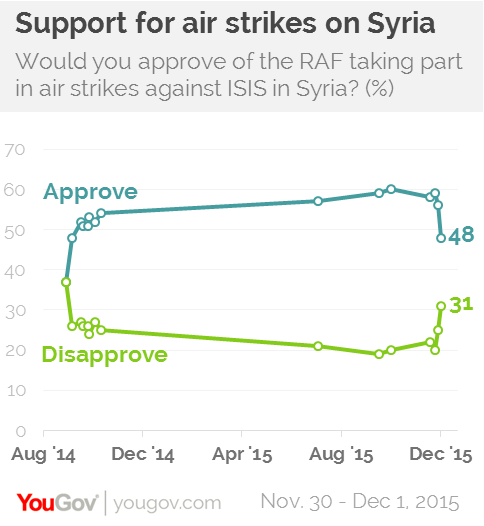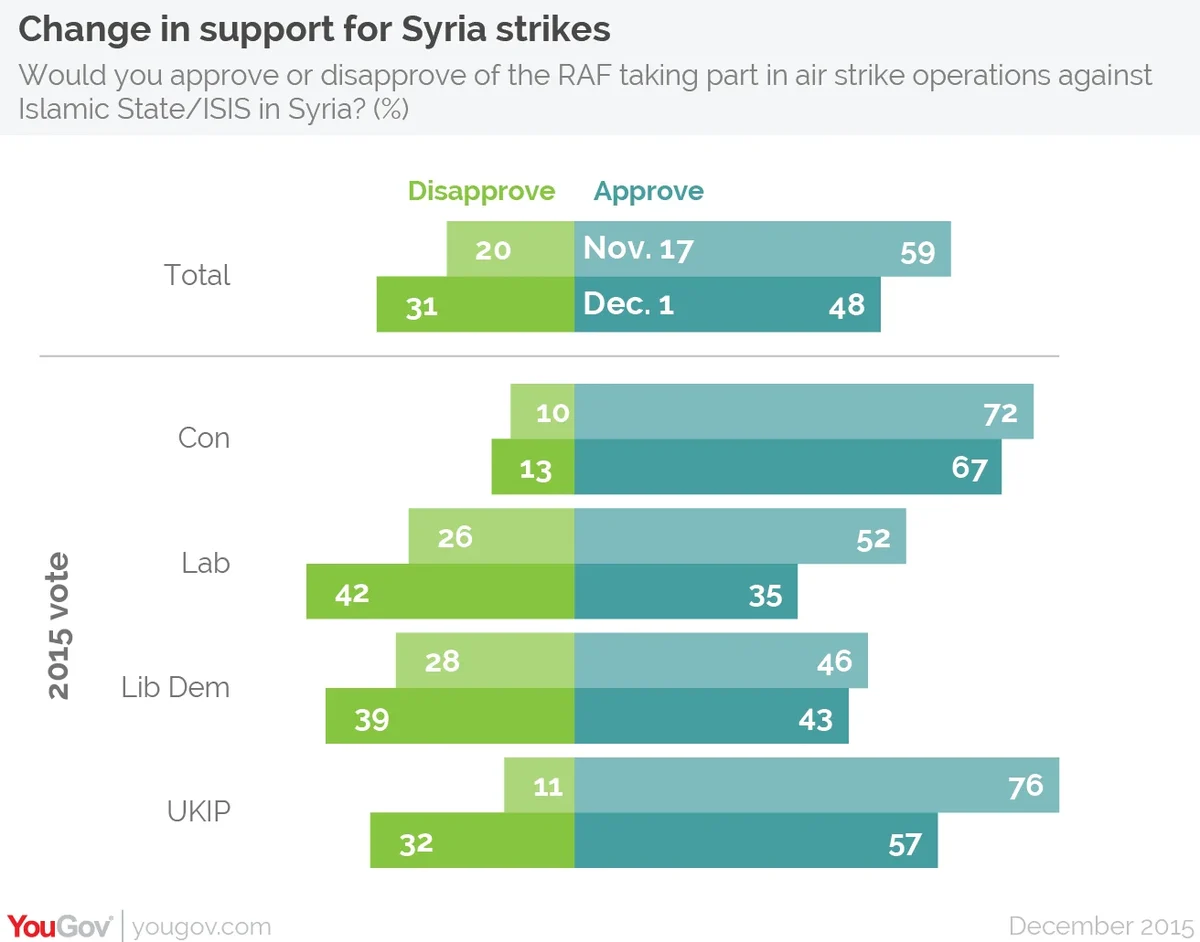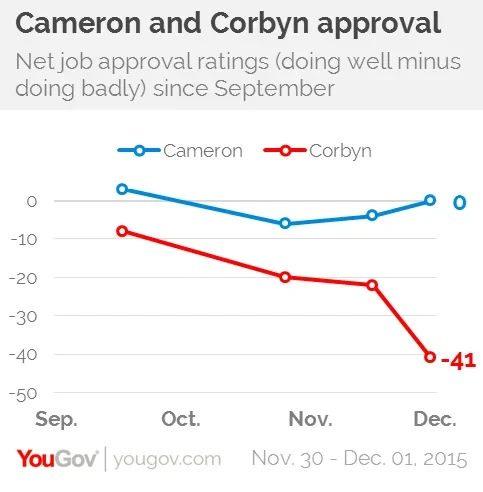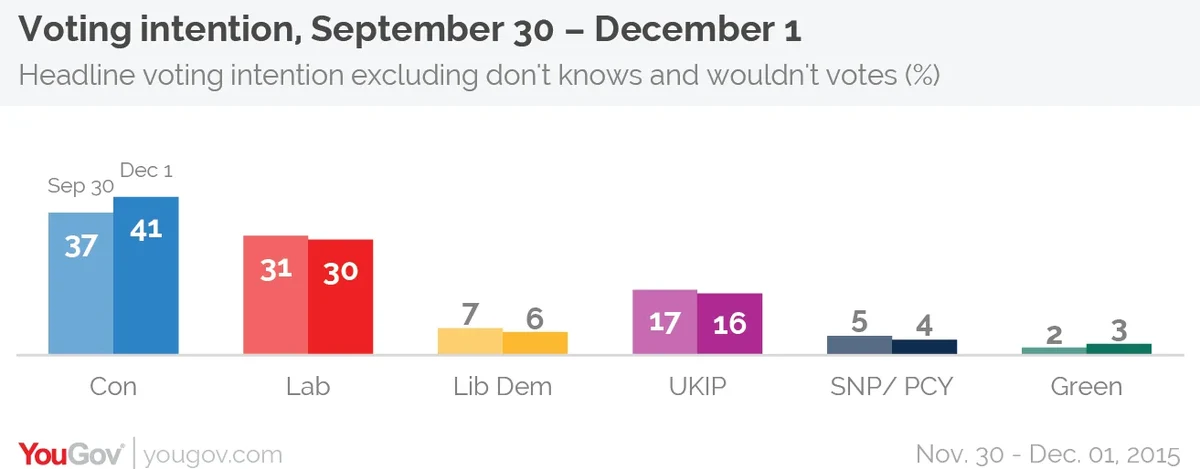YouGov’s latest survey for The Times shows that voters are increasingly impressed by the case against war – but increasingly appalled by the way Jeremy Corybyn is leading his party
In just seven days, five million people have joined the ranks of those opposed to air strikes in Syria. But if Jeremy Corbyn is tempted to rejoice at this, he should beware. He is paying a heavy price for these gains, with support for Labour slipping and his own personal rating crashing from bad to terrible.
Last week, 59% of Britons backed air strikes; now the figure is just 48%. That eleven-point decline equates to five million electors. The number opposed is up eleven points, from 20% to 31%. Every political and demographic group has seen a change, but two stand out:
- The gender gap has widened. Now men favour air strikes by more than two-to-one (58-26%), while women divide evenly: 39-36%.
- Those who voted Labour in May have switched from backing military action by 52-26% a week ago, to opposing it, by 42-35% today.

Among voters who would vote Labour today, opposition to air strikes is even stronger, with 57% backing Mr Corbyn’s stance and just 23% backing the Prime Minister’s position. Paradoxically, that should worry Labour’s leader, for the party is haemorrhaging support among people who voted for the party in May but currently back air strikes. They comprise more than three million people; our figures suggest that well over one million of them would no longer vote Labour if an election were held today.

In essence, Mr Corbyn is polarising the electorate – gaining ground among a large, worried minority of voters, but alienating the much larger majority. This is why, even as the number of people supporting his stance on Syria has grown, so has the number of people who say is failing as party leader.
Just after he won his leadership election, he became the first opposition leader in sixty years of polling to start out with a negative rating, with more people saying he was doing badly than well. His net score then of minus eight soon got worse. Two weeks ago it was minus 22.
Now it is minus 41, with just 24% saying he is doing well and 65% saying badly. It is even negative among people who voted Labour in May; his net score with them is minus six.
This contrasts with David Cameron, whose net rating with the general public is even (47% say well, 47% badly), and plus 79 among those who voted Tory in May (87-8%).
All this helps to explain why the Conservative lead has almost doubled since our last published figures at the end of September, from six% then to 11% now.

Why has the public mood changed so sharply? Movements in our other tracking questions are much smaller – on the likely effectiveness of air strikes, the dangers of reprisal acts by terrorists, and the case for sending ground troops (on which the public remains divided, with supporters narrowly outnumbering opponents a week ago, and opponents holding an equally narrow lead today.)
The likeliest explanation is that as the debate about air strikes has intensified, the issue has moved to the forefront of voters’ minds. For five million voters, this has meant that doubts about military action that, perhaps, lurked in the background have now surfaced.
Having moved once, the public’s view may well move again. At different times, voters have backed military action in Iraq and Afghanistan, and the air raids in Libya. But in each case the public mood soured, as conditions in each country worsened. The Prime Minister will win today’s vote in the Commons, and supporters of air strikes among the general public still outnumber its opponents. But the public verdict that matters will depend on how events in Syria unfold over the months ahead.
PA image








